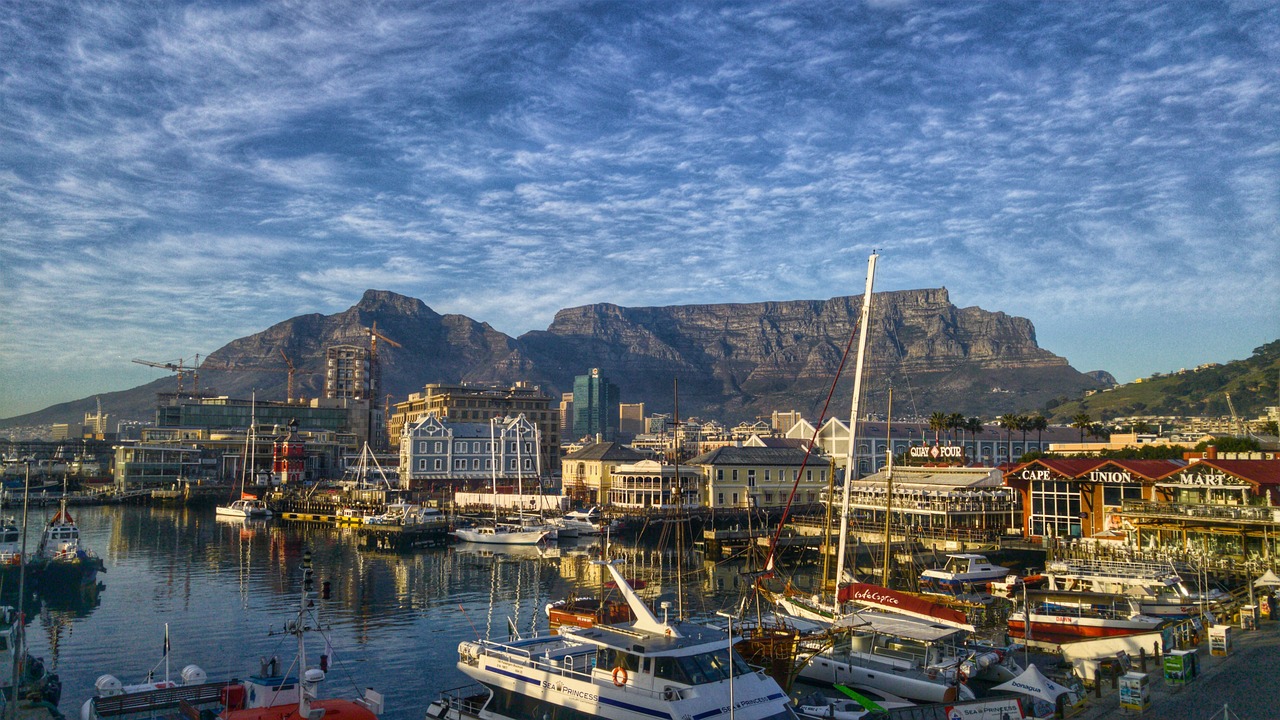Quick Bits:
Cape Town, nestled between mountains and ocean, is a gem of South Africa that promises adventure, culture, and breathtaking landscapes. Its rich history, iconic landmarks, and natural beauty make it one of the most fascinating cities in the world.
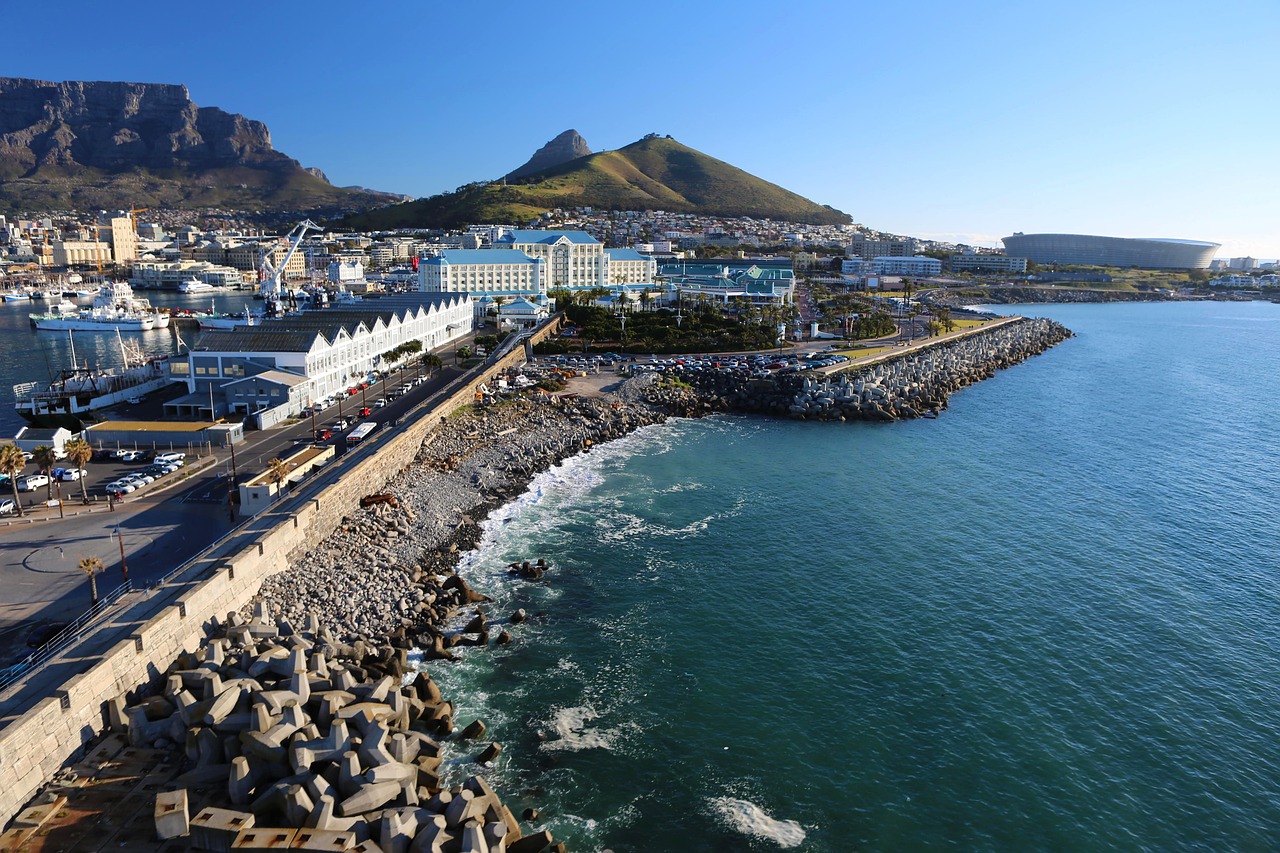
Key Highlights
- The famous Table Mountain offers panoramic views of Cape Town.
-
Robben Island, a UNESCO World Heritage Site, tells stories of resilience.
-
Cape Point boasts spectacular scenery and rich biodiversity.
-
Boulders Beach is home to a colony of adorable African penguins.
-
The V&A Waterfront mixes modern shops and a rich cultural vibe.
General Information
Cape Town is often called the “Mother City” for its significant role in South African history. It stands at the southern tip of Africa, combining historical sites, vibrant neighborhoods, and a wealth of natural beauty. This city is known for its diverse cultures, and its people are known for their warmth. The local language is mainly English, but Xhosa and Afrikaans are also common.
With a bustling harbor, dramatic scenery, and rich culture, Cape Town stands as one of Africa’s most visited destinations. The city offers everything from cultural experiences to adventures in nature, all infused with a relaxed, friendly atmosphere.
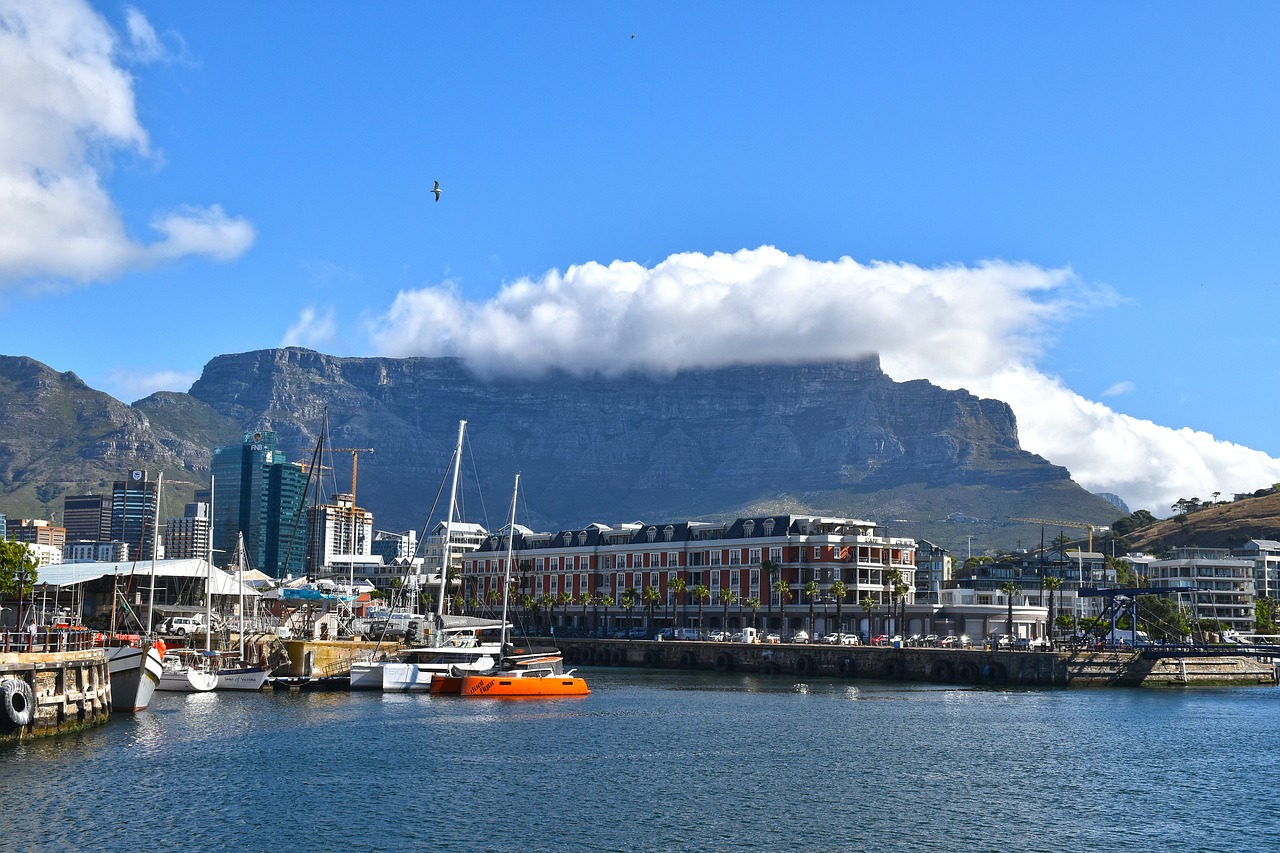
Geography Information
Cape Town lies on South Africa’s southwest coast. Its unique geography is defined by Table Mountain, which overlooks the city and creates a stunning backdrop for urban life. To the west lies the Atlantic Ocean, while the lush valleys and mountains stretch to the north and east.
Cape Town’s strategic location places it near the Cape of Good Hope, the southernmost point of the Cape Peninsula. The surrounding areas are home to rich biodiversity, including Cape fynbos, an iconic part of the region. The diverse geography of Cape Town makes it perfect for anyone interested in exploring both mountain trails and beaches.
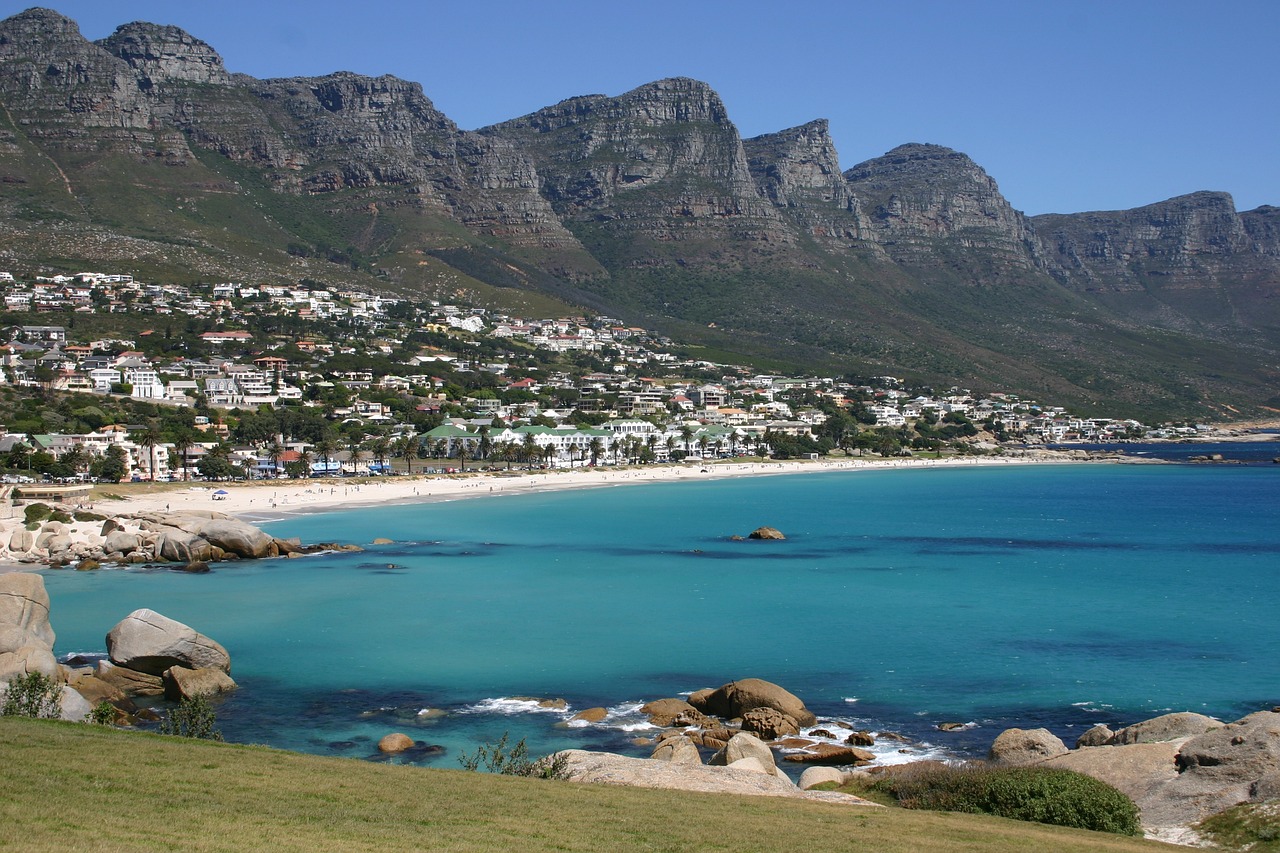
Places to Visit
1. Table Mountain
Table Mountain is a flat-topped icon that stands as the centerpiece of Cape Town. Visitors can take the cableway or hike up to the summit for a sweeping view of the city and the sea. This landmark is also home to a variety of native flora and fauna.
2. Robben Island
Robben Island holds a significant place in South Africa’s history. It was once used as a political prison, most famously for Nelson Mandela. Guided tours bring to life the stories of its past, making it an emotional journey of history and hope.
3. Cape Point
Cape Point sits at the far end of the Cape Peninsula and is part of Table Mountain National Park. It offers dramatic cliffs, scenic ocean views, and rich biodiversity. A funicular called the Flying Dutchman takes visitors up to the old lighthouse.
4. V&A Waterfront
The V&A Waterfront is the heart of the city’s harbor, offering restaurants, shops, museums, and entertainment. The Two Oceans Aquarium, located here, provides insight into the marine life found around the Cape.
5. Boulders Beach
Boulders Beach, near Simon’s Town, is famous for its colony of African penguins. Visitors can walk along boardwalks to see these unique birds in their natural habitat. The beach also offers a peaceful, sheltered place for swimming.
6. Kirstenbosch National Botanical Garden
Kirstenbosch is one of the great botanical gardens of the world, nestled against the slopes of Table Mountain. It is a haven of biodiversity, featuring thousands of plant species, including the famous proteas of the Cape Floral Kingdom.
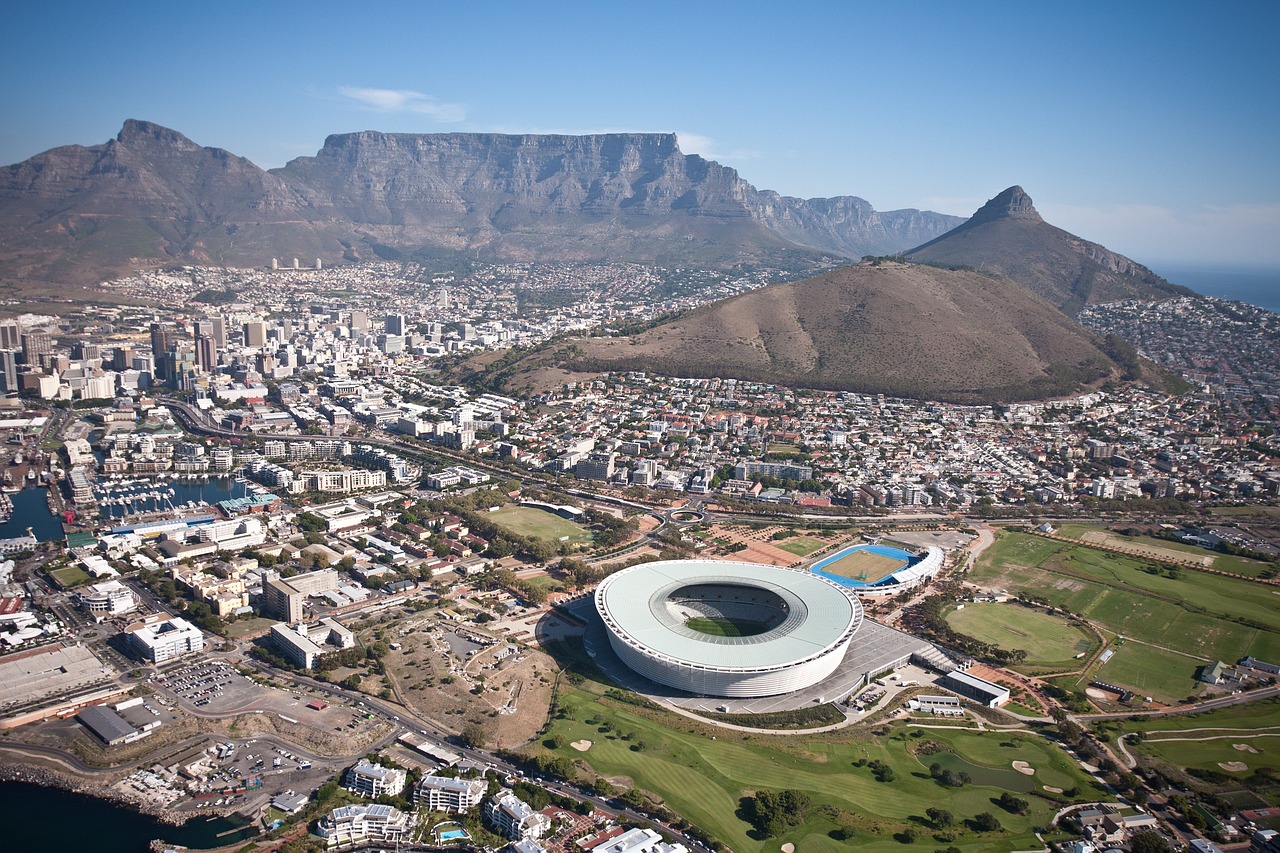
Yearly Climate
Cape Town enjoys a Mediterranean climate, with warm, dry summers and cool, wet winters. Summer extends from November to February, with temperatures ranging from 25°C to 30°C. These months are perfect for enjoying Cape Town’s beaches.
Autumn runs from March to May. During this season, temperatures cool to about 15°C to 20°C, and the landscape turns more vibrant. Winter lasts from June to August, bringing rain and cooler weather, with average temperatures of 10°C to 18°C.
Spring, from September to October, sees flowers bloom and mild weather return. Spring is a beautiful time to explore Cape Town’s gardens and scenic trails.
Best Time of Year to Visit
The best time to visit Cape Town largely depends on the activities planned. Summer (November to February) is the perfect time for beach lovers and outdoor enthusiasts, as the weather is warm and dry. This is the season for festivals, open-air concerts, and hikes.
For a quieter experience, autumn (March to May) is ideal. The weather remains pleasant, and the tourist numbers begin to drop. It’s also a great time for those interested in exploring Cape Winelands, where the grape harvest season is in full swing.
Wildlife enthusiasts may prefer spring (September to October) to see blooming wildflowers and enjoy the whale-watching season. Winter (June to August), though cooler and wetter, offers fewer tourists and lower prices. Plus, it’s an excellent time for a cozy evening in front of a fire at one of Cape Town’s famous lodges.

In Summary…
Cape Town blends urban charm with natural beauty, offering something for every traveler. From exploring Table Mountain to penguin-watching at Boulders Beach, the city provides a mix of adventure, culture, and relaxation. Its Mediterranean climate ensures a pleasant experience for visitors, no matter the season. Cape Town is a city rich in history, filled with diverse experiences, and surrounded by the most stunning landscapes in Africa.

